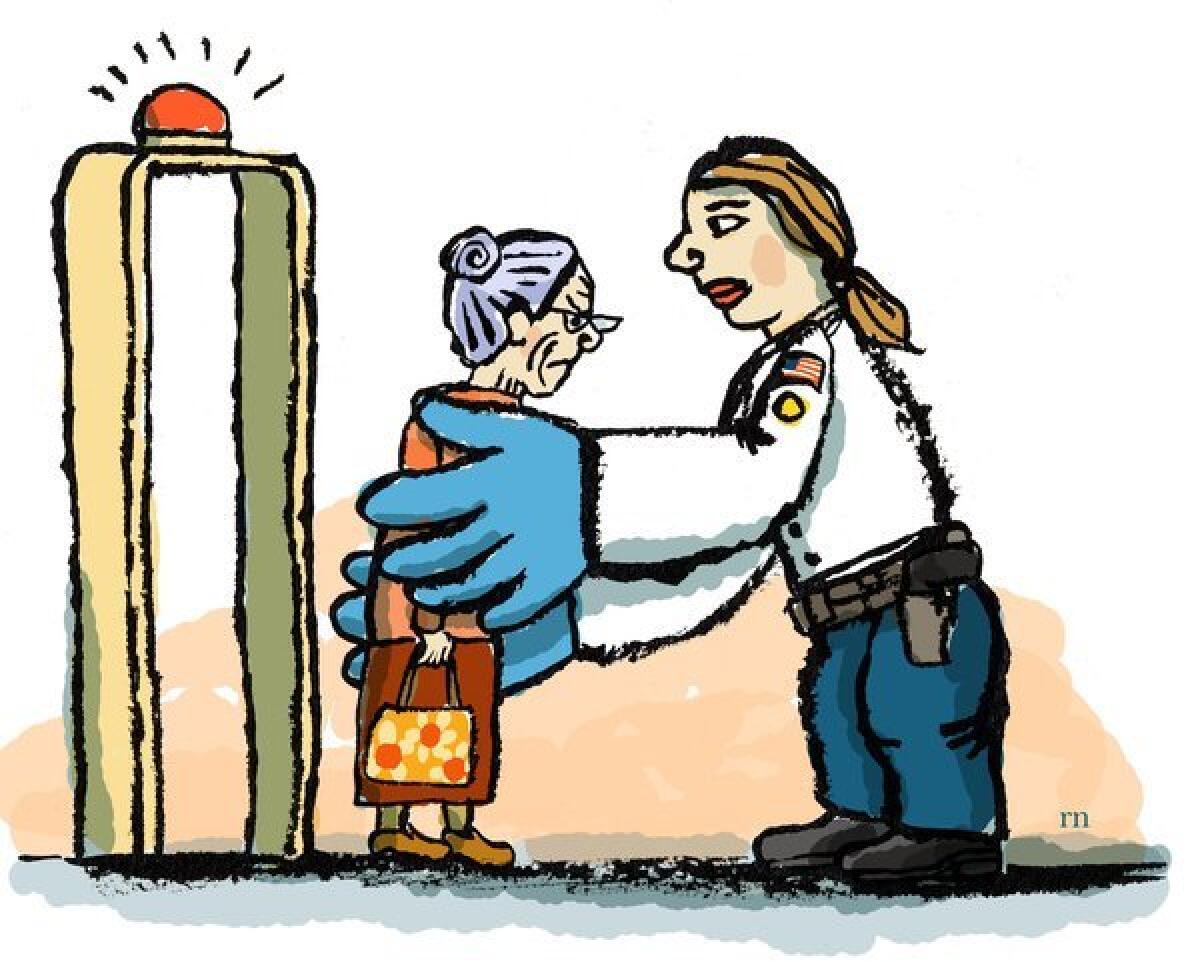Arrest from 1970 on record at airport customs but nowhere else

- Share via
Question: I have a perplexing travel problem that is unique and interesting. In 1970, I was arrested for possession of a small amount of marijuana, which was then a felony. I was acquitted and have no criminal record. In the last 25 years, I have made perhaps 15 trips abroad, reentered the U.S. and gone through immigration with no problems. On my most recent trip abroad, immigration in Miami took me into a holding area and held me for about 60 minutes before talking to me. It turns out my felony arrest from 43 years earlier showed up on the computer screen. I was told I should get my record expunged and was released. I checked the jurisdiction where I was arrested and the arrest is so long ago that they have no record of it. Why did it take 43 years for the arrest to show up (or did 14 immigration officers ignore it)? How can I prevent this from happening again when there is no record to expunge?
Name withheld
Los Angeles
Answer: First, a note to readers. Usually we require a name and a city of residence for publication of a letter. This letter writer gave his permission for that, but because his is a fairly common name, I withheld it; a quick check of Spokeo.com showed 960 men with the same name in the Los Angeles-Riverside area. The possibility that the 959 would be explaining to someone that “it wasn’t me” or that I’d get 959 emails calling me everything but a child of God suggested bending this rule was prudent.
More important, law enforcement and legal sources, with whom I shared the writer’s information, were perplexed about this encounter with Customs and Border Protection.
“I think it’s very odd that he’s being stopped and questioned as a U.S. citizen,” said Debra Dowd, an immigration lawyer with LeClairRyan in Richmond, Va. “This was surprising to me.”
Frank Scafidi, director of public affairs for the National Insurance Crime Bureau and a 20-year veteran of the FBI, said that based on what I shared with him, “The CBP had no legitimate reason to detain this person. If they did, they had a responsibility to explain their reasoning to him.”
What’s not surprising — at least, to those who understand the legal system — is how an arrest can dog you for life, even if you were acquitted.
“The acquitted defendant mistakenly believes ‘case dismissed’ equals ‘records erased,’ which, as you now know, does not,” Richard Kling, a professor at Chicago Kent College of Law, wrote in an email. “Records are not erased or expunged unless the defendant affirmatively files a petition to expunge, serves it on the prosecuting agency and then waits for the court to grant the petition [which could be months], which on a not-guilty finding should be granted. Even then, however, the order granting the expungement has to be served on the various agencies.”
Many steps usually equal many dollars spent in the legal process, so should the writer proceed as Customs and Border Protection suggested?
Not necessarily, Dowd said. “What I would do is to go to Customs and Border and sit down with a supervisor.”
That is, in fact, what CBP suggested in an email to me: “If a traveler suspects their experience results from an incident in which they were involved and for which there are mitigating circumstances, they can initiate an inquiry for relief through the DHS Traveler Redress Inquiry Program,” Stephanie Malin of CBP Public Affairs wrote in an email.
“DHS TRIP provides a single point of contact for individuals who have inquiries or seek resolution regarding difficulties they experienced during their travel screening at airports or train stations or crossing U.S. borders.”
When you go to https://www.dhs.gov/dhs-trip, you’ll find most of the wording from Malin’s email. (At the risk of wandering off into the existential weeds, doesn’t every person’s experience result “from an incident in which they were involved”? Otherwise, it wouldn’t be his or her experience, would it?)
To meet with CBP, the writer may need the elusive case documentation; if the records department doesn’t have it, the prosecutor’s office may, said Kling, who is also a defense attorney.
As for the explanation of why this happened, here’s what Malin wrote: “Every individual, to include U.S. citizens, are subject to inspection upon their entry into the U.S. Although CBP does use information from various systems in selecting passengers for further examination, a component of our risk management practice is the use of random referrals as well.”
Your disagreements with that paragraph may extend well beyond the subject-verb issue. We know that CBP has a difficult task; we know that, since 9/11, the task of protecting our borders has taken on increased urgency.
Still, here’s what immigration lawyer Dowd said of the incident: “If he’s U.S. born and bred and unless there’s some sort of outstanding warrant, it’s just bizarre.” The letter writer was born in the Pacific Northwest, and he says he has no warrants. I’ll go with “bizarre.” How about you? Write to [email protected].
Have a travel dilemma? Write to [email protected]. We regret we cannot answer every inquiry.
More to Read
Eat your way across L.A.
Get our weekly Tasting Notes newsletter for reviews, news and more.
You may occasionally receive promotional content from the Los Angeles Times.











